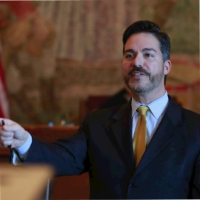Butler RICO Act Lawyer, New Jersey
Sponsored Law Firm
-
 x
x

Click For More Info:
-
Francis P. Crotty Esq.
103 Sterling Dr Franklin Lakes, NJ 07417» view mapCriminal Defense Experience You Can Trust
Let Francis P. Crotty Esq. handle all of your criminal defense legal matters today.
201-294-6462
Not enough matches for Butler RICO Act lawyer.
Below are all Butler Criminal lawyers.
Albert Cernadas
✓ VERIFIEDCriminal, DUI-DWI, Misdemeanor
Albert Cernadas Jr. is the former First Assistant Prosecutor of Union County and Certified by the Supreme Court of New Jersey as a Criminal Attorney. ... (more)
Joel Bacher
✓ VERIFIEDCriminal, DUI-DWI, Misdemeanor, Traffic, Accident & Injury
The Law Office of Joel M. Bacher, is located in Wayne, New Jersey. For over 40 years, I have been providing legal counsel to individuals and small bus... (more)
Mark Joseph Cintron
Corporate, Consumer Protection, Criminal, Personal Injury
Status: In Good Standing
John P. Tierney
Animal Bite, Criminal, Commercial Insurance, Commercial Real Estate
Status: In Good Standing
FREE CONSULTATION
CONTACTFREE CONSULTATION
CONTACTClifford J. Weininger
Juvenile Law, Municipal, Family Law, Criminal, Accident & Injury
Status: In Good Standing
Marvin J. Hammerman
Accident & Injury, Criminal, Traffic, Divorce & Family Law, Estate
Status: In Good Standing Licensed: 11 Years
FREE CONSULTATION
CONTACT Francis Crotty Franklin Lakes, NJ
Francis Crotty Franklin Lakes, NJ Practice AreasExpertise
Practice AreasExpertise


